Hui Ge
Peking University, China
Abstract Title: Dynamic cognitive mechanisms of nurses risk decision-making in computer-mediated medical conflicts
Biography:
A doctoral candidate at the Peking University School of Nursing, specializing in nursing education and nursing informatics. During the doctoral program, participated in the application and implementation of several projects, including those funded by the National Natural Science Foundation of China. Acted as the principal investigator for a school-level project, filed two invention patent applications, and published five SCI papers as the first author.
Research Interest:
Healthcare professionals must navigate multiple medical demands and make rapid, accurate risk decisions under conditions of information overload and limited time in complex clinical contexts. However, the cognitive and neural mechanisms underlying this phenomenon remain insufficiently explored. Twenty-one participants performed priority judgments of concurrent medical tasks under high- and low-risk conditions while their electroencephalography signals were recorded. Gaussian hidden Markov models were used to characterize and analyze state transitions across four key stages of cognitive processing: stimulus perception, attentional allocation, risk evaluation, and response execution. Risk decision-making is a multi-stage, dynamically coordinated cognitive process. This study is the first to identify four distinct dynamic cognitive modes of risk decision-making in computer-based medical conflict scenarios: efficient integration, early inefficiency, flexible adaptation, and premature closure. By elucidating risk decision-making mechanisms from a cognitive dynamic perspective, this study provides a foundation for human-computer collaboration in automated medical systems and trustworthy AI-based decision support.

